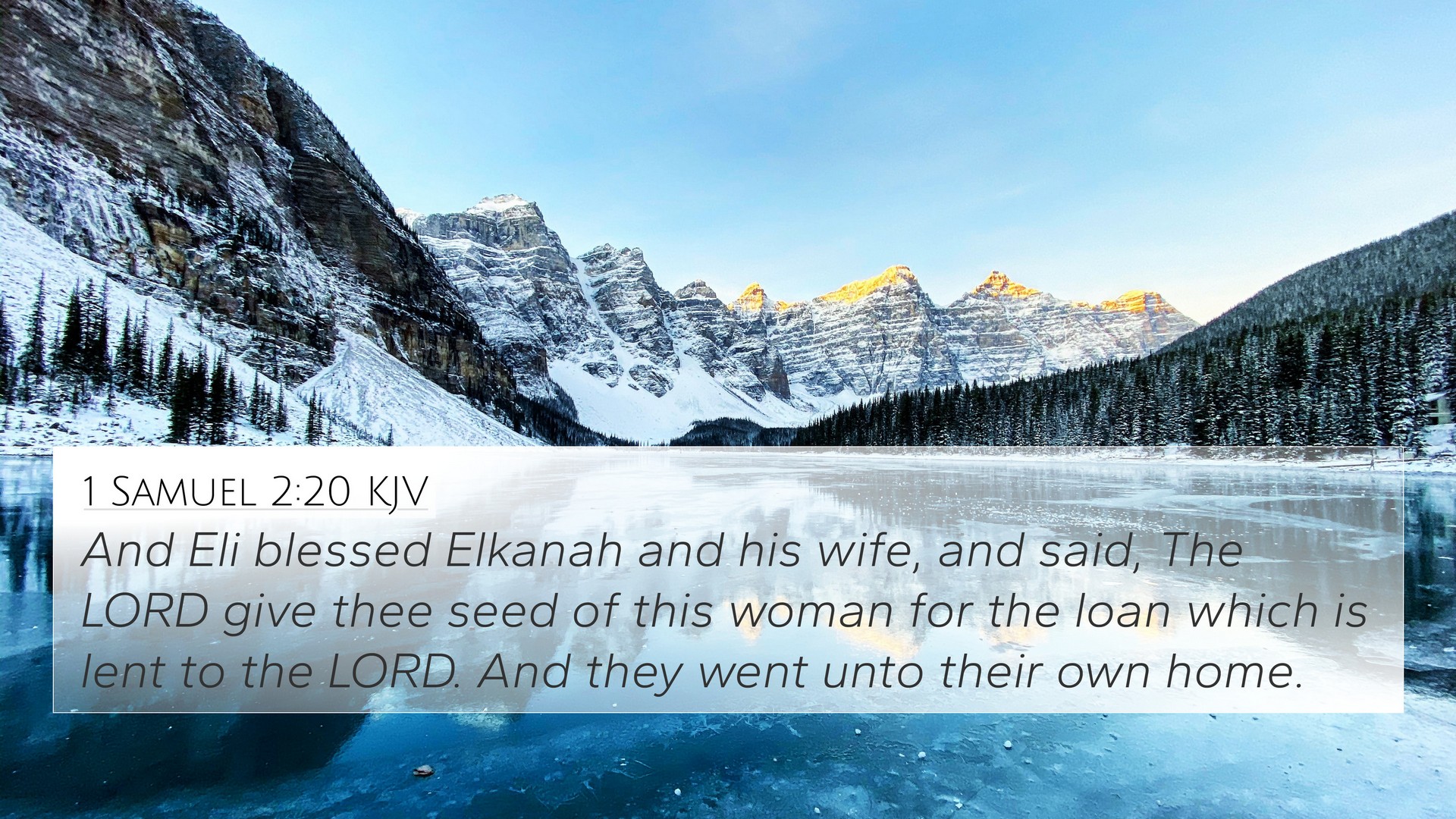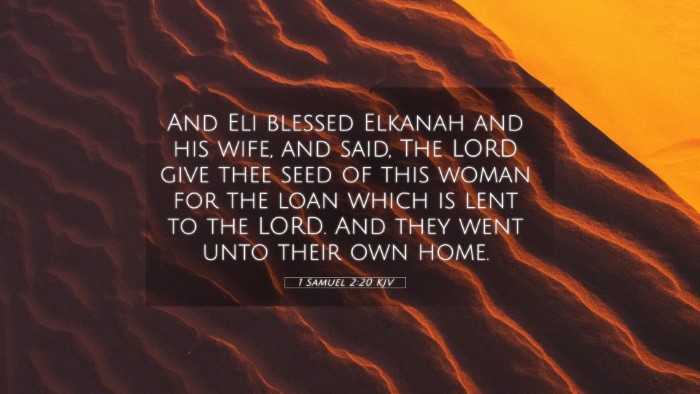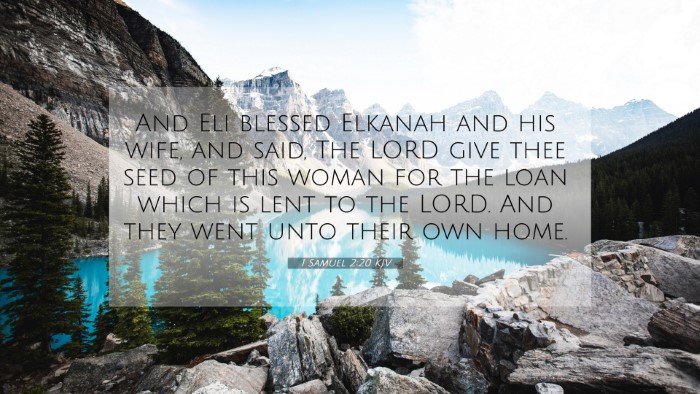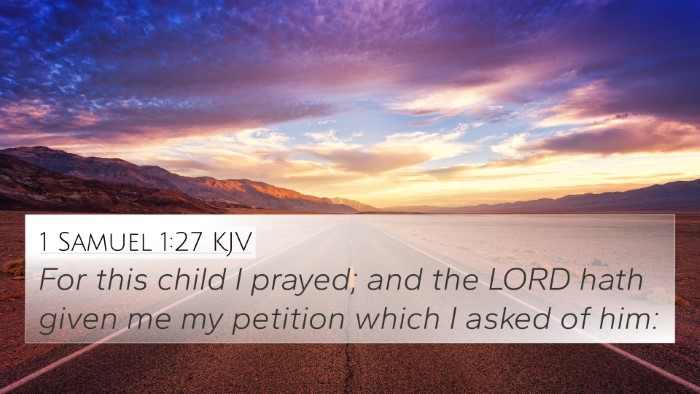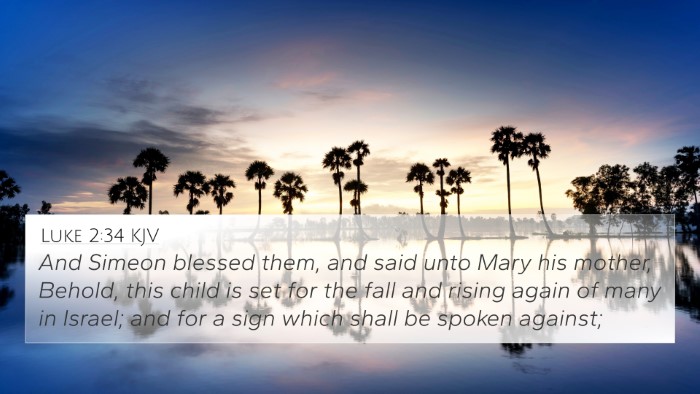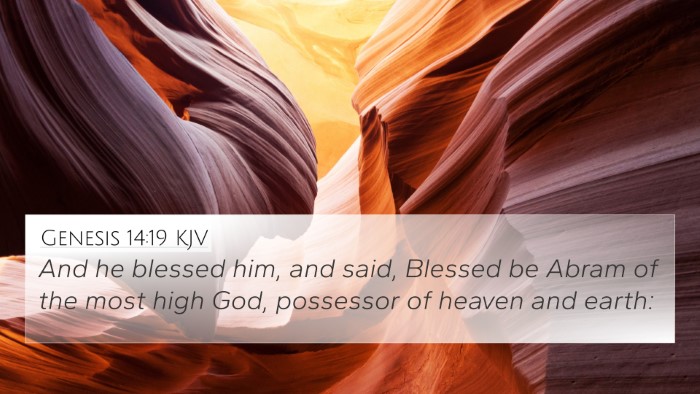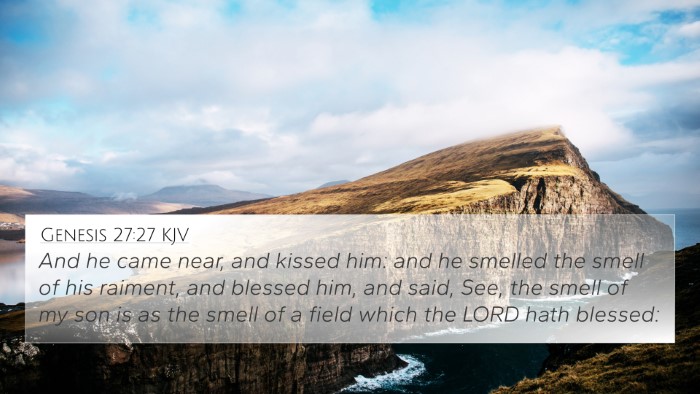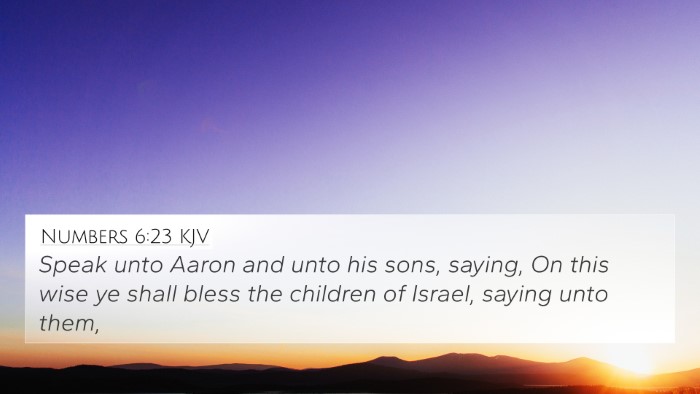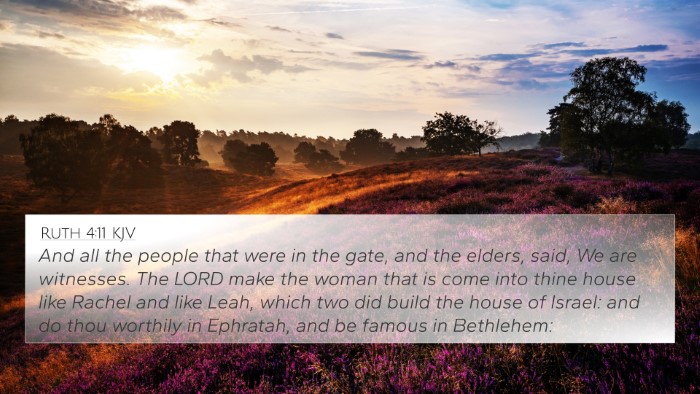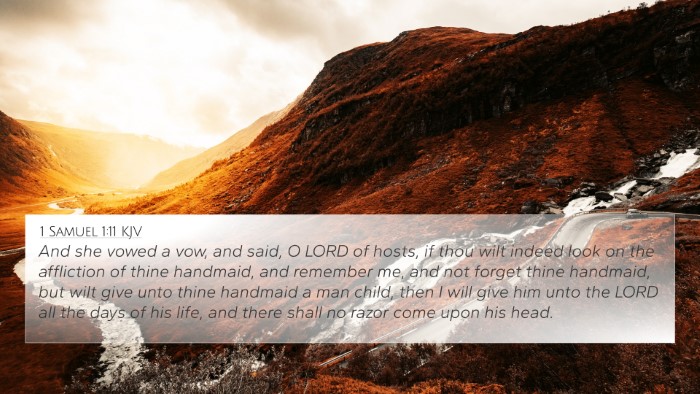Understanding 1 Samuel 2:20
Verse: 1 Samuel 2:20 - "And Eli blessed Elkanah and his wife, and said, The LORD give thee seed of this woman for the loan which is lent to the LORD. And they went unto their own home."
Summary of Meaning
This verse captures a moment in the narrative of 1 Samuel where Eli, the high priest, acknowledges the faithfulness of Elkanah and Hannah. Their commitment to dedicating Samuel to the Lord in gratitude for God’s providence is recognized by Eli, who blesses them for their devotion.
Commentary Insights
Drawing from the insights of Matthew Henry, Albert Barnes, and Adam Clarke, this verse signifies several key themes:
- Divine Blessing: Eli's blessing is seen as a vital connection to the Lord’s recognition of faith. Henry highlights that the blessing not only acknowledges their offering but also invokes God’s favor upon their family.
- Covenant of Dedication: The loan mentioned refers to Samuel, who is dedicated to the Lord. Barnes emphasizes the idea of God entrusting blessings to those who faithfully return what has been given.
- Family Units in Divine Purpose: Clarke points out that this event emphasizes the importance of family in serving God’s purposes, as seen in the act of dedicating a child to religious service.
- Faith and Reward: The connection between the act of giving and receiving blessings is central in this verse. As Elkanah and Hannah give Samuel to the Lord, they are richly blessed in return.
- Symbolism of Seed: The mention of "seed" represents both physical offspring and spiritual legacy. It indicates the expectation of more blessings stemming from a faith-filled commitment.
Bible Cross-References
To appreciate the wider Biblical context and the linking nature of scripture, consider the following cross-references that highlight similar themes:
- Genesis 30:22-23: The story of Rachel and Leah waiting for God to bless them with children resonates with Hannah's own plea for a child.
- 1 Samuel 1:27-28: This preceding passage illustrates Hannah's vow and the fulfillment of her prayer, leading to Samuel's dedication.
- Psalm 127:3: Emphasizes that children are a heritage from the Lord, reinforcing the idea of divine blessing through progeny.
- Luke 1:13: The announcement of John the Baptist’s birth parallels the theme of miraculous births through faithfulness.
- Matthew 19:14: Jesus' teaching on children aligns with the idea of dedicating youth to the service of the Lord.
- Hebrews 11:11: Highlights faith in receiving the blessing of a child, which connects to Hannah's faith in her vow.
- 1 Corinthians 7:14: Discusses the sanctification of children through godly parentage, linking to the blessings of familial dedication.
Thematic Connections between Verses
Identifying the connections between these verses provides a comprehensive understanding of the Biblical theme of dedication and divine recompense. Each scripture contributes to an inter-Biblical dialogue that reinforces the concept of faith leading to blessings:
- The Role of Prayer: Many verses highlight the importance of prayer in seeking God's intervention, as exemplified by Hannah (1 Samuel 1:9-20).
- Promise and Fulfillment: A thematic thread throughout the Bible, the promise of a child often signifies divine favor (Isaiah 9:6).
- Dedication in Service: The act of dedicating one's children can be seen in both Old and New Testament teachings (Luke 2:22 for Jesus' presentation).
Tools for Bible Cross-Referencing
Understanding the connections such as those illustrated above can be enhanced through various Bible reference resources:
- Bible Concordance: A tool that helps locate specific verses and their themes quickly.
- Bible Cross-Reference Guide: A systematic approach to recognize interrelations between scriptures.
- Cross-Reference Bible Study methods: These methods allow for deeper exploration of themes across both Testaments.
Conclusion
1 Samuel 2:20 serves as a profound reminder of the importance of faithfulness, blessing, and the acknowledgment of God’s providence within family life. By examining this verse alongside its cross-references, one can gain a richer understanding of scripture as a cohesive and interconnected narrative.
